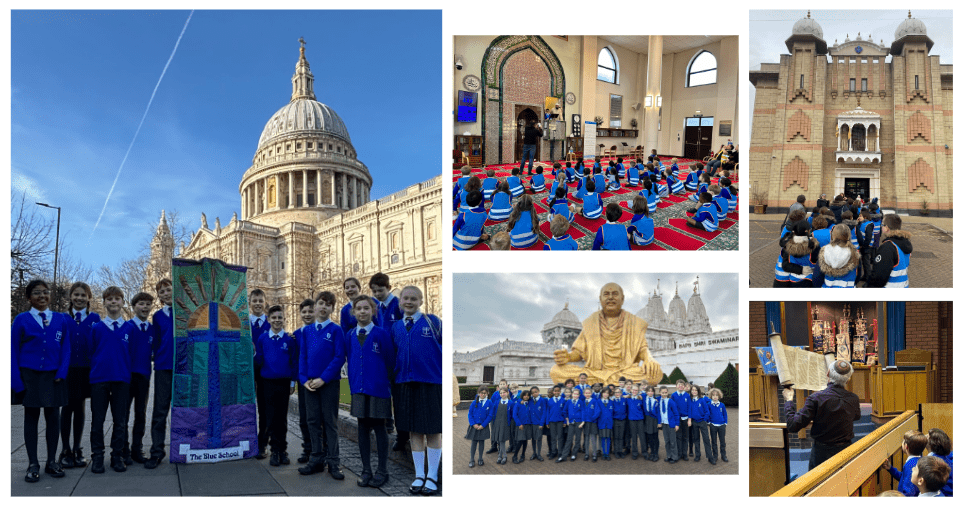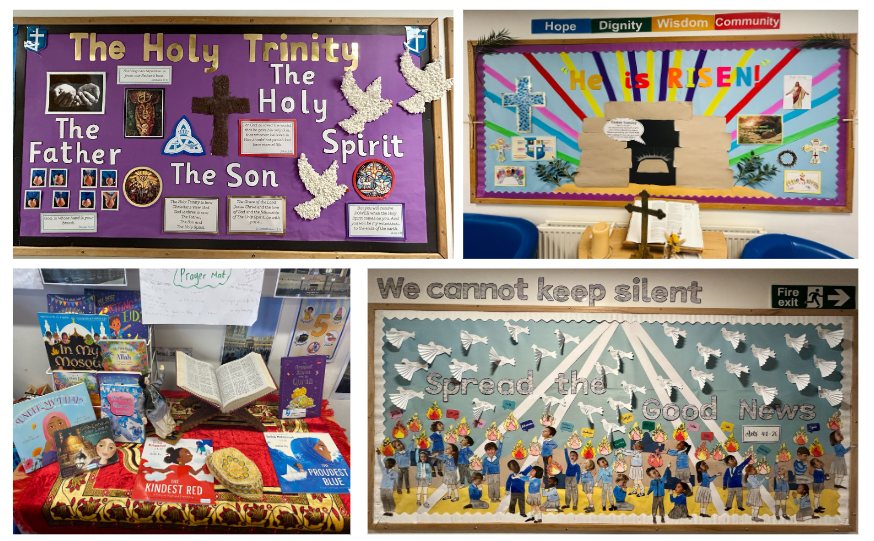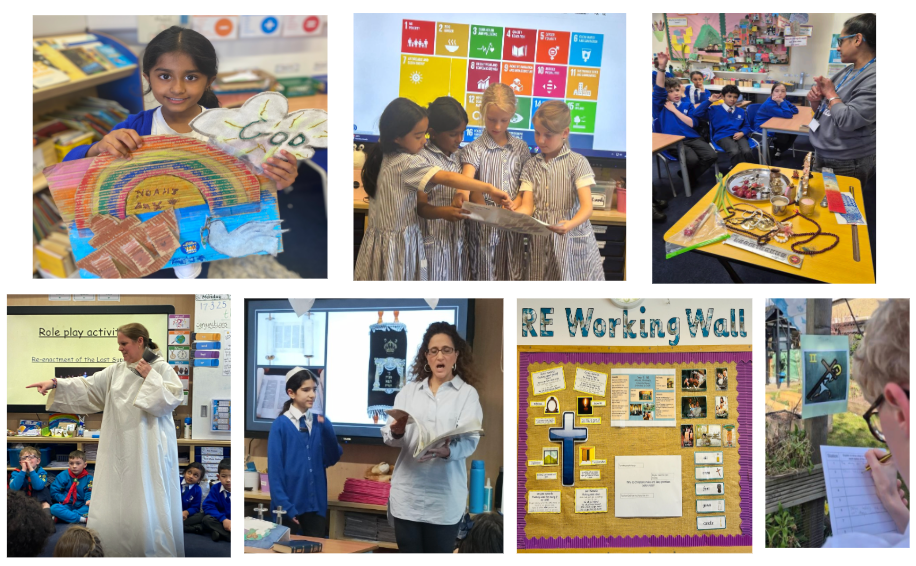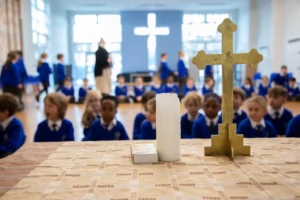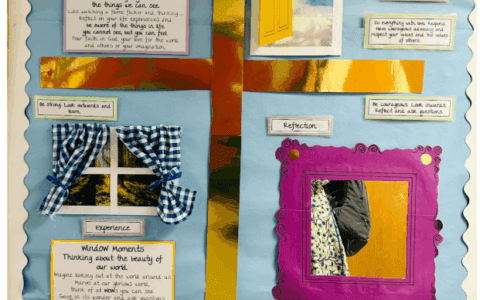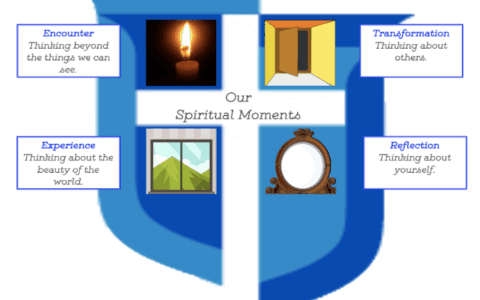At The Blue School, where children come from all faiths and none, Religious Education enables every child to flourish and to live life in all its fullness (John 10:10).
Religious Education is a golden thread running through our community, deeply rooted in our vision: “Whatever you do, in word or deed, do everything in the name of the Lord Jesus, giving thanks to God the Father through him” (Colossians 3:17). Guided by this, our curriculum nurtures wisdom, hope, dignity and community, helping every child to grow as a person of compassion, respect and courage.
We are a school where children of all faiths and none journey together, learning to honour their own stories while valuing the beliefs and traditions of others. In lessons, worship, enrichment visits and reflective spaces, children encounter the richness of Christianity as well as the treasures of the world’s major faiths. They do not just learn about religions; they grow into young people who seek to listen deeply, think generously and act courageously.


